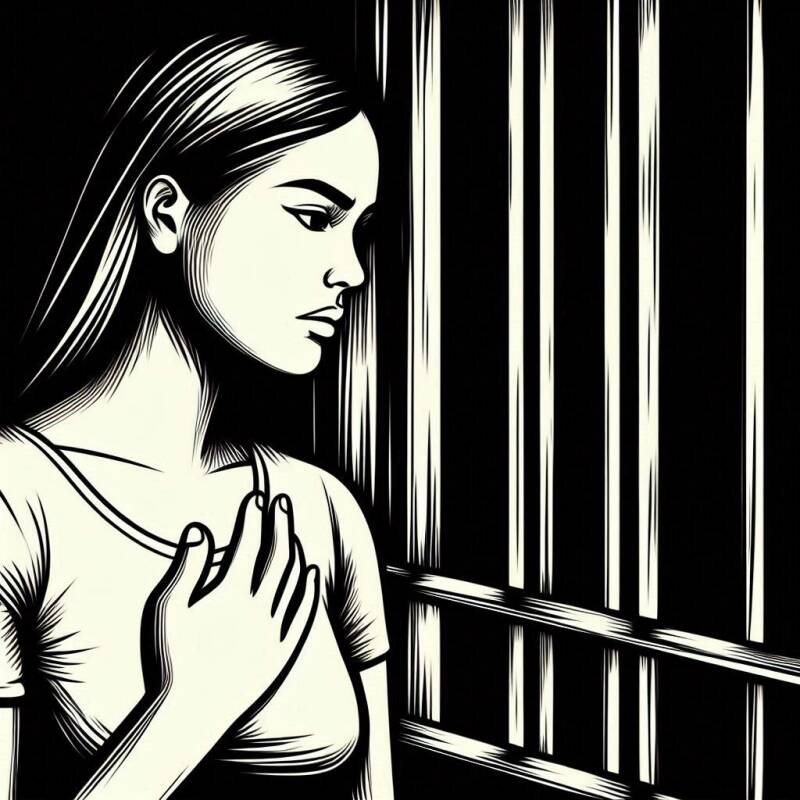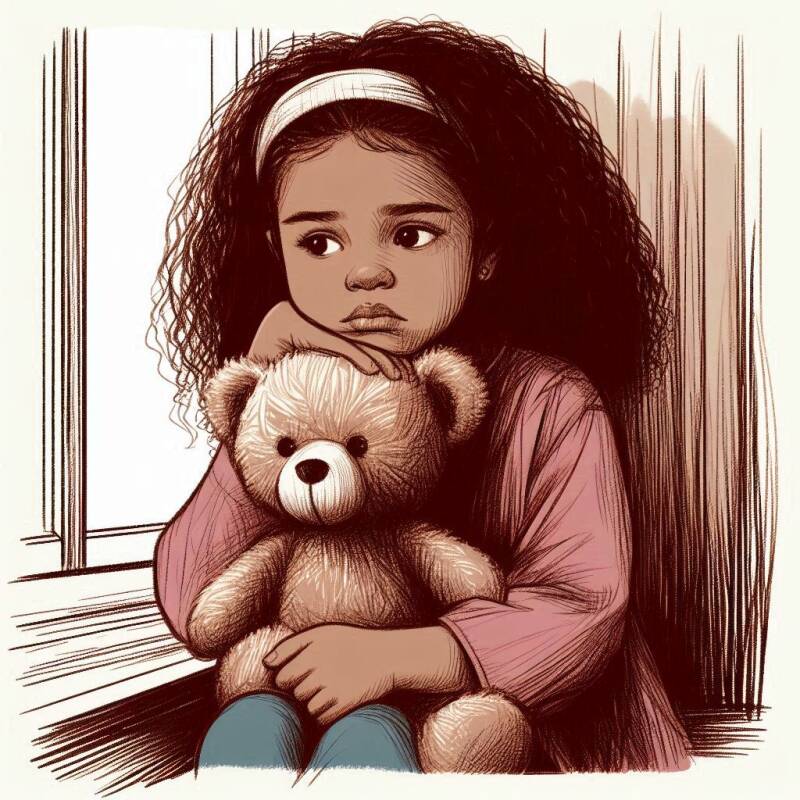Please Pardon Our Dust, Typos or Any Run-On Sentences..
Due to its Nature, Our Site is Constantly "Under Construction"
Lovingly dedicated to every mother seeking and fighting for justice.
I started this site in an effort to keep shing a spotlight on the systemic injustices and practices that have kept our country in a continuous cycle of racism, misinformation and hate since its inception.
These are real people.
They are humans, not statisticall data.
My daughter and countless others face sentences that, per our constitution and laws, should be deemed non-proportional:
Principle of Proportionality
The principle of proportionality requires that penalties imposed for crimes be proportional to the seriousness of the act committed. This principle, which may be implicit or explicit in constitutions, seeks to avoid excessive or disproportionate sanctions that do not correspond to the harm caused.
If you're unfamiliar with mandatory minimums, Here's a hypothetical, yet realistic, scenario that illustrates the potential injustice of mandatory minimum sentencing:
The Case of Maria:
Maria is a single mother of two, struggling to make ends meet. Her partner left her with substantial debt, and she's facing eviction.
Desperate, she takes on small jobs and in one such case, agrees to deliver a package for a friend's cousin, thinking it contains electronics. She's paid a small amount, which she intends to use for rent.
Unbeknownst to her, the package contains a quantity of an extremely lethal controlled substance and the amount is just over the threshold which triggers a mandatory minimum sentence.
Even though Maria a) has no prior criminal record b1) her involvement was substantially proven to the courts to have been unknowingly commited and b2) taking the odd jobs, in general, was driven by financial desperation, none of that can even be considered by the presiding judge because mandatory minimum laws removes the judges use of discretion. And now, because that particular controlled substance imposes a Mandantory Minimum sentence of 15 yrs, her children have no parent left to care for them. Unfortunately, Maria has no living family left and her ex has completely disappeared, which leave the children as wards of the state.
The judge, despite recognizing the mitigating circumstances and Maria's lack of criminal intent, is legally bound to impose the mandatory minimum
As a result, Maria is separated from her children, loses her job, and faces a long period of incarceration. Meanwhile, those higher up in the drug distribution chain, who orchestrated the operation, may receive more lenient sentences through plea bargains or other legal maneuvers.
-------
Why This Is Unjust
* Lack of proportionality: The punishment doesn't fit the crime. Maria's actions, while illegal, were driven by desperation, and the mandatory minimum ignores the context of her situation.
* Removal of judicial discretion: Judges are unable to consider mitigating factors, such as the defendant's background, the nature of their involvement, or the potential impact on their families.
* Disparate impact: Mandatory minimums often disproportionately affect low-income individuals and people of color.
* Focus on quantity over culpability: The focus on drug quantity rather than the individual's role or intent can lead to excessive sentences for low-level offenders.
* The creation of more damage: The long term effects of removing a mother from her children can cause a ripple effect of negative consequences to the children, and the community.
This example highlights how mandatory minimum sentencing can lead to harsh and unjust outcomes, particularly for those with zero or limited involvement in criminal activities or those without a criminal record at all.
The justice system systemically and disproportionately affects poor and working-class parents, many of whom remain incarcerated due to systemic inequities. A significant factor is the inability to afford bail or legal fees, leaving them trapped in a cycle of imprisonment.
*Studies show that low-income individuals are incarcerated at higher rates simply because they lack the financial resources to secure their release or hire effective legal representation. Public defenders, often the only option for these individuals, are frequently underpaid, overworked, and overwhelmed by large caseloads. This limits their ability to provide adequate attention to each case, potentially resulting in poor outcomes for their clients. Additionally, systemic biases and a lack of support networks exacerbate these challenges, perpetuating a cycle of poverty and incarceration. Additionally, even if a "paid attorney" is secured, there is still the probability of them not acting in the best interest of their client or being unethical, yet the defendant's hands are tied because they have already used what little they had to secure the attorney they have.
--------
For a deeper dive into these issues, ** this report provides further insight. Addressing this injustice requires systemic reform, including investments in public defense, alternatives to cash bail, and broader social support for vulnerable populations
________
Personally, seing all of this unfold has literally felt like we're living in an "LMN Movie".
I can't begin to explain what it feels like to see
my daughter missing her own child so much that she is now just simply existing.. staying in a constant wave of fight or flight mode. I have watched her eyes slowly going dim because she's losing hope.
She has paid counsel that is NOT working for her best interest. This attorney is steeped in conflicts of interest, being paid and controlled by a 3rd party, refuses to show my daughter her case documents or even go to see her or call her. Everything my daughter learns of her case come 2nd hand from her ex, who is paying the attorney ..
Having an attorney who's not compromised would have had her out of there by now..
Her life—a life she painstakingly built- including a business that has just started thriving and a young daughter of her own—has been forever upended and she's been sitting in a jail cell literally 22 mins from her child for 11 months because the State petitioned for no bond and her attorney has done zero to challenge it, help her, or even start any defense. The 1 document filed since November, 2024 and through aprox 6 pretrial hearings was a request for discovery.
In addition, there's the conflicts of interest that have been judicially ignored as well as ignored by other attorneys I've gone to seeking counsel for her.
He's also a paid attorney (not of my choosing) and while others I've contacted explaining the situation to and wanting to hire have said she can choose to change attorneys, certain circumstances have her hands tied.
As a mom sitting silently by watching my child literally losing her life just doesn't work for me...I've tried giving everyone grace.. I paused because my child asked me to. But it's time to shed light on the corruption, biased judiciary system and judicial negligence that have put her life in jeopardy as well as so many others.
My hope is that by shedding light on these injustices, we can compel those in positions of power to finally see and act. And if, in this process, I can help even one other mother, sister or loved one navigate this bewildering and often cruel system, then I will have fulfilled my purpose.
Much love,
BluRaven
* www.prisonpolicy.org/reports/incomejails.html


*Check out blog page for our 1st micro e-book*
Understanding the Mental Health of Incarcerated Moms with Young Children
Research highlights the significant mental health challenges faced by incarcerated mothers, particularly those with young children. Separation from their children, combined with the stress of imprisonment, often leads to higher rates of depression, anxiety, and feelings of guilt. According to The Sentencing Project, more than 60% of women in state prisons are mothers, and the majority have children under the age of 18. Additionally, studies from Prison Policy Initiative show that incarcerated mothers are more likely to experience mental health struggles compared to incarcerated fathers. For more detailed insights and resources, visit Vera Institute of Justice, which explores the unique challenges faced by incarcerated women and their families.
The Cost of Inaction
"Throughout history, it has been the inaction of those who could have acted; the indifference of those who should have known better; the silence of the voice of justice when it matters most; that has allowed evil to triumph"... Haile Selassie
When people with the power to make a difference choose apathy instead, they unknowingly—or at times knowingly—pave the way for wrongs to persist. This pattern reminds us of the critical importance of individual and collective responsibility. Each of us holds the power to act, to speak out, and to stand for what is right. Let us not allow silence or indifference to dictate the course of history, but rather, let us strive to be the voices and actions that lead to justice and positive change.
About us
A Mother's Love is a platform created by a concerned mother who refuses to stay silent in the face of injustice. Our mission is to fight for truth and justice, no matter the cost.


Add comment
Comments
#FreeEboni